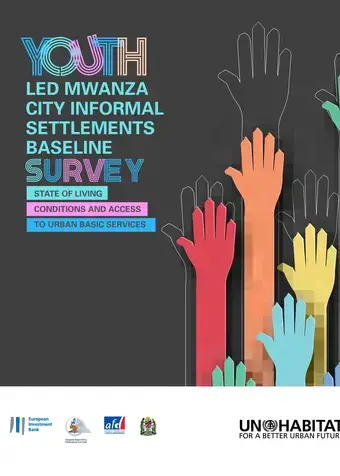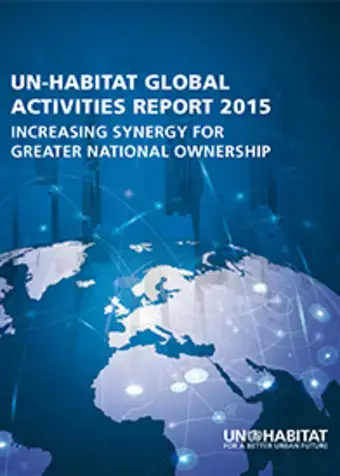Mwanza, 28 June 2018--Residents of the informal settlements of Mabatini, Igogo and Kilimahewa in Mwanza, Tanzania have a reason to smile as they access safe sanitation and clean water in the rocky hills of Mwanza.
The Lake Victoria Water and Sanitation (LVWATSAN-Mwanza) Project: Mobilization and Institutional Facilitation of Sanitation (UN-Habitat)
Lake Victoria Water and Sanitation program (LVWATSAN) was first launched in 2004 by the Ministers responsible for water within the East Africa Community (EAC) with the aim of achieving the Millennium Development Goals (MDGs) for water and sanitation in the ‘secondary urban centres’ within the Lake Victoria Basin; ensuring the long term sustainability of the physical investments; addressing the current threats to the lake’s ecosystems from inadequate water and sanitation provision in the secondary and larger settlements around the Lake.
Too Pressed To Wait - Jane Weru, Executive Director Akiba Mashinani Trust
Jane Weru, Executive Director of Akiba Mashinani Trust, in her lecture “Too Pressed To Wait” discusses the water and sanitation hygiene systems in informal settlements in Nairobi, and how they are causing a strain on both the physical and psychological health of people who live and work in these settlements, in particular women and girls.
UN-Habitat and Thailand WASH project kicks off
Kisumu and Kakamega, Kenya 11 March 2015 - UN-Habitat in partnership with the Royal Kingdom of Thailand together with the County Governments of Kakamega and Kisumu last month launched the Thailand and UN-Habitat partnership for WASH in schools project at Matete Primary School. The launched follows last year’s contribution of USD 32,500 by the Royal Kingdom of Thailand to support UN-Habitat’s Lake Victoria Water and Sanitation Programme (LVWATSAN) which aims to assist small towns in the Lake Victoria in meeting the MDGs for water and sanitation.
UN-Habitat reaches out to Lamu County of Kenya
Nairobi 4 March 2015 - UN-Habitat last week hosted a consultative meeting in Gigiri with officials from Lamu County Government. The aim of the meeting was to explore possible areas of collaboration to support the county government in their pursuit to improve access to urban basic service within Lamu town. Lamu County was founded in 1370, and has been recognized as a UNESCO World Heritage Site listed in 2001, and a Biosphere Reserve in 1980.
“Pro-poor solid waste management” - Marijk Huysman, Institute for Housing and Urban Development Studies
Marijk Huysman bases her lecture on the importance of accessible and effective urban waste collection services for public health, environmental conditions, productivity and aesthetics of cities. Yet evidence shows that waste services are often failing poor people. She argues that long before the concept of green growth was embraced as an urban development trend, informal waste workers have made a significant economic and environmental contribution to urban centers and also provides a source of income for millions of people worldwide.



 Nairobi, 27 March 2015—With the contribution of USD50.93 million from the Government of
Nairobi, 27 March 2015—With the contribution of USD50.93 million from the Government of